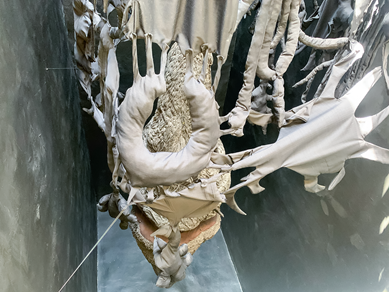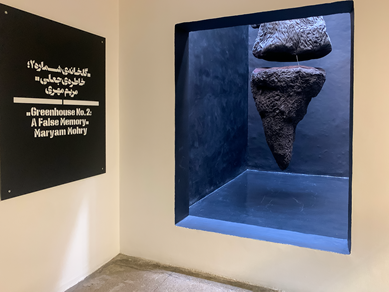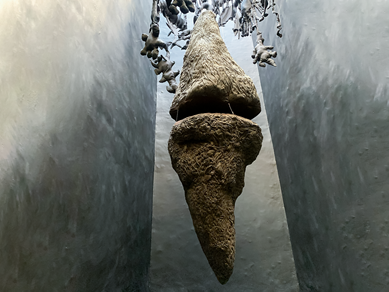15 Jul - 5 Aug, 2022

Statement:
In “Greenhouse No. 2; A False Memory,” a continuation of her Greenhouse series, Maryam Mohry considers greenhouses as a place for experimenting and playing. The space provides an opportunity to experience nurturing and fabricating as well as recounting and partaking in a conversation. Playful ironies and continuous storylines are the main features of Maryam’s works that have always been created in a fluid and unpretentious fashion due to her cheerful approach and simple materials.
In this project, which is presented in the Pasio space of Mohsen Gallery in collaboration with O Gallery, Maryam embodies mountains and flowers of whose existence she is not entirely sure, for she does not know if the memory of picking those flowers from those mountains are real or a construct distorted recollection of her childhood fantasies. By reconstructing nature, as she questions her own mind and reviews her memories, she seems to invite the audience to rethink the mechanism of falsified memories. Have all our childhood memories really happened? How much of our memories are manipulated by our brains? Are the memories that have turned into key events in the formation of our experiences and personality, forgotten and/or rendered insignificant by others? ///
Instead of burying the uncertainty and confusion and avoiding it, Maryam welcomes it. Thus, a greenhouse, a sanctuary for her, becomes a workshop in which she can bring memories to life and play around with them. Therefore, working with fabric in this workshop is not a mere choice of material; it is, indeed, the subject matter of her work. It is about keeping alive the memory/tradition that has been going on in her family for years, like delicate and complex needlework used in the finishing of the mountains. Much like her watercolors, however, the flowers have a study-like quality, and similar to her memories, they appear mortal and unstable.
Maryam Mohry steps beyond forging memories in her mind, and creates living examples for them as monuments, so as to make them more real for herself, while facilitating their archival. Does fabrication of memories happen unconsciously in human life? How much does the human brain tend to falsify memories? If we had the power to deliberately forget, modify, and alter our memories, would we make them real? And in that case, wouldn’t our individual identity and historical reality be entirely different?






